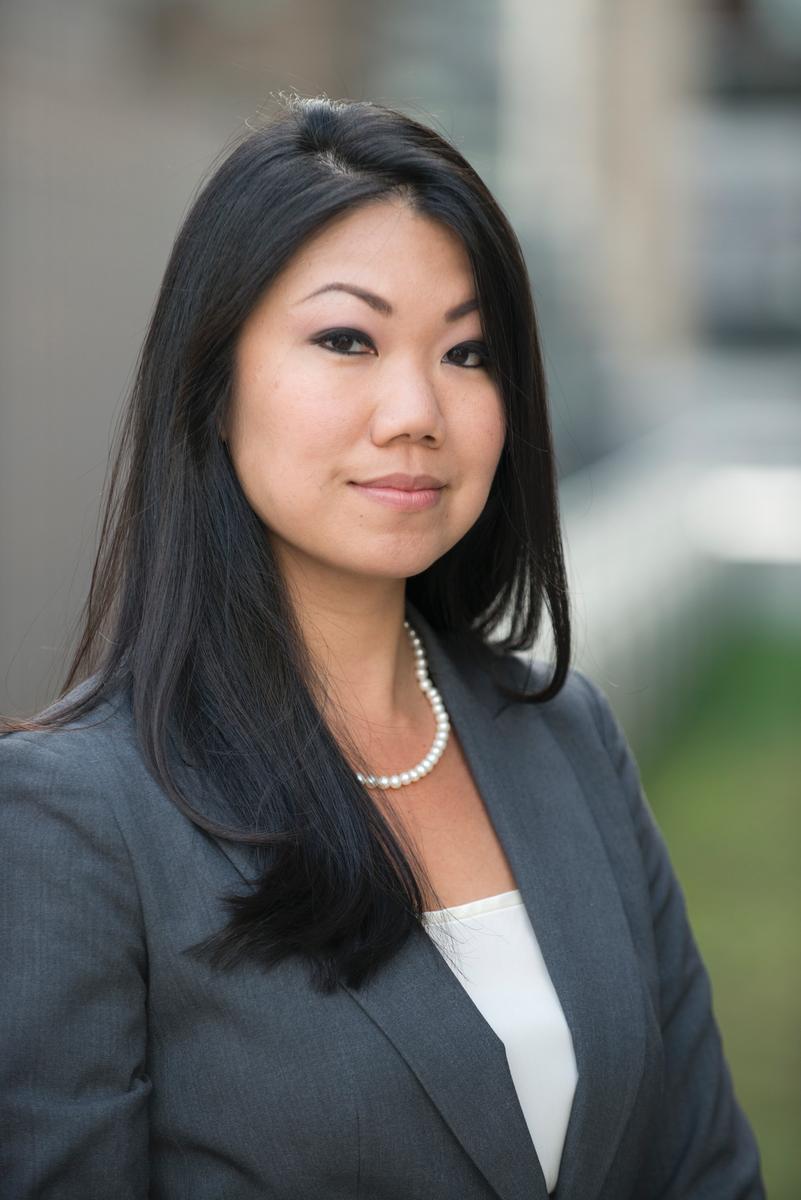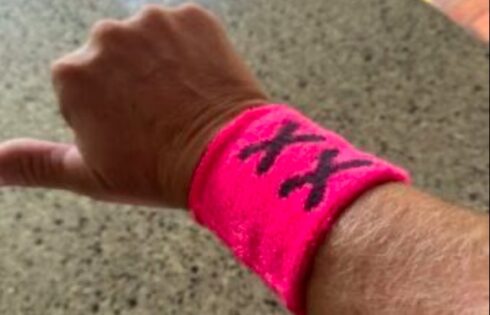
‘The rumors act as a constructive expulsion’
When colleges adjudicate sexual misconduct claims, some accusing students can’t wait for a verdict to be handed down.
They take extrajudicial action by publicly labeling accused students as rapists, potentially ruining those students’ reputations even if they are eventually acquitted.
Lawyers for accused students have a response to this “troubling trend” of “street justice” in Title IX cases: turn the campus disciplinary code back on accusers.
Warshaw Burstein partner Kimberly Lau advises her clients how to use bullying and harassment policies against accusers who subvert the confidentiality of ongoing proceedings, she told The College Fix.
Lau, who has critiqued the Trump administration’s proposed Title IX regulations as too flexible for colleges, explained how this tactic can get around the murky legal intersection of due process, freedom of speech and defamation.
Nesenoff & Miltenberg partner Andrew Miltenberg, who filed the first-known class action lawsuit on behalf of accused students, told The Fix he “love[s] the idea” and has recommended it to his own clients.
He detailed the horrors his clients faced during and after their proceedings in a phone interview, saying schools don’t take this issue seriously and sometimes “willfully ignore” it.
“Schools essentially come back with some form of we can’t stop people from talking” before proceedings have concluded, Miltenberg wrote in an email. “[T]he real tragedy is that often, the rumors etc act as a constructive expulsion since the young man’s reputation and credibility is destroyed regardless of the win.”
The “ubiquitous” nature of the internet will worsen the trend of street justice until colleges and the Department of Education finalize procedures to manage this delicate balance, Lau wrote in an email.
That’s why she recommends that schools make evaluations of street justice on a “case-by-case” basis and permit students to claim harassment or bullying in response to defamation.
While the #MeToo movement’s influence makes it hard to convince schools to protect accused students’ rights, Lau emphasized that confidentiality protects both accusers and accused.
Either party in a proceeding could use the mechanism of student code-of-conduct complaints to protect their reputation against unsubstantiated public statements, she said. Since both pay tuition, they should each receive “equal access to education without harassment.”
‘As a result of VAWA and Title IX, schools believe their hands are tied’
Under current policy of the Department of Education’s Office for Civil Rights policy and its proposed Title IX regulations, universities should not restrict either party’s ability to “discuss the investigation” or the “allegations” so they can “defend their interests” and “gather and present relevant evidence.”
This effectively prevents institutions from curtailing the dissemination of unsubstantiated claims regarding ongoing or closed investigations via “gag orders.”
Lawmakers brought up the issue of gag orders in rulemaking sessions for the Violence Against Women Act six years ago. But the revised wording in the law “did not make explicit the Department’s position that the regulations do not allow for gag orders as a condition of receiving notice of the final determination” in a Title IX proceeding, according to an email from a PR representative on behalf of Lau.
This suggests that VAWA and current OCR policy have left some legal territory uncharted pending intervention or resolution by courts and lawmakers.
Some colleges have filled in the blanks by advising administrators in training materials that “naming respondents” under sexual misconduct investigation does not constitute “retaliation,” the PR email said.
MORE: Why the Trump administration should not give colleges ‘choices’
 While the exclusion of gag orders promotes an ideal environment for evidence and witness investigation, Lau (left) contends that it leaves the door open for a “defamation campaign” intended to “prejudice” others against the person in question.
While the exclusion of gag orders promotes an ideal environment for evidence and witness investigation, Lau (left) contends that it leaves the door open for a “defamation campaign” intended to “prejudice” others against the person in question.
“As a result of VAWA and Title IX, schools believe their hands are tied; schools do not believe they have the authority to prohibit complainants from discussing the allegations with as many individuals as they see fit,” Lau wrote in an email.
In the meantime, “[s]chools would rather tell accused students to take their issue to the courts and file a defamation action against the complainant than tell a complainant that he/she should not publicize their allegations.”
A breach-of-contract lawsuit for not accepting bullying and harassment complaints stemming from defamation may gain more traction in the courts than suing from a “Title IX perspective,” Lau said.
But lawyers must account for colleges’ obligations under VAWA and Title IX if they try to argue this, “and I have not seen this occur yet.”
Officials ‘essentially encourage the complainant to wreak havoc on the man’s life’
Miltenberg said the “confidentiality, integrity, sanctity of the process [is] subverted by this continued public, airing of allegations.”
Many Title IX officers and investigators have “pre-engineered” determinations as to how the investigation should play out due to their backgrounds in victims’ rights, rape victim crisis, and domestic violence, he said in the phone call.
Officials will add on additional violations if an accused student violates privilege and confidentiality, but they “essentially encourage the complainant to wreak havoc on the man’s life,” Miltenberg claimed.
This imbalance in how Title IX officers treat retaliation, harassment, bullying and intimidation has been “weaponized” to let “the rumor mill do the dirty work that schools can’t always accomplish”- driving accused students from the school.
MORE: A rarity – student sent to prison for false accusations
Miltenberg believes as soon as schools enforce confidentiality and privacy “rigidly and uniformly,” the problem will subside. But without a court ruling or determination by OCR, it’s a “judgement call” on the universities’ part.
The procedure needs to make defamation “as dangerous for the accuser” as it is already for the accused, he said.
Miltenberg (below) highlighted that this predicament would not exist in civil or criminal courts that have higher standards of evidence and more clearly defined practices. He noted that Sacred Heart University student Nikki Yovino went to prison for falsely accusing students including Malik St. Hilaire, whom Miltenberg is representing in a civil suit against the university.
The process is “vague and biased from the outset,” with a “preponderance” standard that would not hold up in criminal courts, he said.
MORE: First class action filed against university for Title IX due process violations

‘Counseling resources’ for accused students – and nothing more
Lau’s recommendation to use internal harassment and bullying complaints against accusers, putting them on the defensive for spreading unverified claims, came out of her own clients’ experiences with street justice.
One client faced “damage to his reputation on campus, the loss of friends, and concern over his future employment options” following public social media posts that identified him as guilty, contrary to the school’s finding of “not responsible.”
Another client feared losing his summer internship due to statements made by his ex-girlfriend that accused him of sexual assault but never initiated Title IX procedures.
In both cases they filed “harassment/bullying complaints,” but the schools did not pursue a “meaningful investigation,” she said: They just offered “counseling resources.” Students who retained her after their “street justice” didn’t pursue claims against their schools because they had already left or resolved the conflict through other channels.
It doesn’t matter whether it’s an Ivy League school or community college, Miltenberg said: Clients have to wait until the process is finished to file for defamation to avoid appearances of retaliation or silencing alleged victims.
At that point, the damage in his clients’ lives is already realized, affecting their entire social network and extracurriculars such as sports teams, he said: They remain branded as “unindicted rapists.”
Screamed at, spat on: Had to leave school after a ‘near breakdown’
One of the best known examples involved a Miltenberg client: Paul Nungesser, who sued Columbia University for letting his accuser publicly describe him as a rapist even after it exonerated him.
Emma Sulkowicz became known as “Mattress Girl” for turning her discredited accusations into her senior thesis, which involved lugging around a mattress as a walking protest against Nungesser’s exoneration. She received course credit for defaming Nungesser, he argued.
It’s difficult to build a case using Title IX, Lau said, noting that both Nungesser’s original gender discrimination claim and second “hostile environment” claim were tossed by a federal judge.
After the 2nd U.S. Circuit Court of Appeals agreed to review the case – having already ruled against Columbia in a different lawsuit by an accused male student – Nungesser received a settlement and apology from the university.
MORE: Read Columbia’s ‘half-assed’ apology for ruining Nungesser’s life
Nungesser’s ostracization at the school was so bad after the Title IX proceeding that he only left his apartment for class during his last two years at Columbia, Miltenberg said.
Another client was “harassed and bullied from the minute he left his dorm room to the minute he walked into class,” the lawyer said, with students following him around, spitting on him and screaming. Ultimately the student left the school after a “near breakdown.”
Other examples shared by Lau: Middlebury College student Elizabeth Dunn published a crowdsourced list of more than 30 male students with no evidence to back sexual misconduct claims against them, and ultimately got off with a light punishment.
Two males from Wofford College sued after they left the school, citing the perpetual harassment that followed their acquittal, and filmmaker Nate Parker suffered repercussions at the box office after discredited rape claims resurfaced from his criminal trial.
“There aren’t many judges who want to, in the middle of the #MeToo movement … take a definite stand on what will be seen as silencing a victim,” Miltenberg said.
MORE: A letter in her file for defaming dozens of male students
IMAGES: 9nong/Shutterstock, Warshaw Burstein, Nesenoff & Miltenberg
Like The College Fix on Facebook / Follow us on Twitter






Please join the conversation about our stories on Facebook, Twitter, Instagram, Reddit, MeWe, Rumble, Gab, Minds and Gettr.